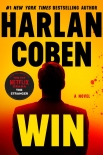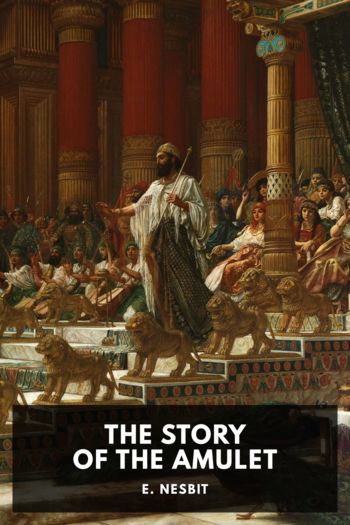WIN, Coben, Harlan [ebook and pdf reader .txt] 📗

Book online «WIN, Coben, Harlan [ebook and pdf reader .txt] 📗». Author Coben, Harlan
The Reverend Sinclair spots me as I get out of the back of a black car. With his free hand, he shields his eyes. He looks to be his age—sixty-five—with thin wisps of hair on his scalp. When he’d opened the church door, he wore a practiced wide smile, the kind of thing you put on just in case someone is around and you want to appear kind and friendly, which—who am I to judge yet?—Calvin Sinclair may very well be. When he sees me, however, the smile crumbles to dust. He adjusts his wire spectacles.
I start toward him. “My name is—”
“I know who you are.”
I arch one eyebrow to register my surprise. Calvin Sinclair’s voice has a nice timbre to it. I am sure that it sounds celestial coming from a pulpit. I did not call beforehand or announce my arrival. Kabir had contacted a local private investigator who assured us that Sinclair was at the church. Had Sinclair traveled somewhere else whilst I was in the air, said private detective would have followed him so I could have confronted him wherever I saw fit.
The British bulldog waddles toward me.
“Who’s this?” I ask.
“Reginald.”
Reginald stops and regards me with suspicion. I bend down and scratch behind his ears. Reginald closes his eyes and takes it in.
“Why are you here, Mr. Lockwood?”
“Call me Win.”
“Why are you here, Win?”
“I assume you know why.”
He nods with great reluctance. “I suppose I do.”
“How do you know my name?” I ask.
“When Ry Strauss was found murdered,” he begins, “I knew that would mean renewed interest in…” Calvin Sinclair stops and squints up at either the sun or his version of God. “You were on the news a lot.”
“Ah,” I say.
“Ry Strauss stole your paintings.”
“Seems so.”
“Naturally, I followed the story with interest.”
“With personal interest?”
“Yes.”
I was glad that the Reverend Sinclair was not going to give me a giant song-n-dance pretending that he had no idea why I was here, had never heard of Arlo Sugarman—all the verbal red tape I had feared having to waste time slicing through.
“Come along, Reginald.”
He gives the leash a gentle snap. I stop scratching Reginald behind the ears. They start walking. I stay with them.
“How did you find me?” he asks.
“Long story,” I say.
“You’re a very rich man, from what I’ve read. My guess is, you are used to getting what you want.”
I don’t bother to reply.
Reginald stops by a tree and urinates.
“Still,” Sinclair continues. “I’m curious. What part of our life gave us away?”
I see no reason not to tell him. “Oral Roberts University.”
“Ah. Our start. We were more careless then. You found Ralph Lewis?”
“Yes.”
He smiles. “That was three aliases ago. Ralph Lewis became Richard Landers and then Roscoe Lemmon.”
“Same initials,” I say.
“Perceptive.”
We are behind the church now, heading toward a path in the woods. I wonder about that. I wonder where we are going, whether there is a destination or whether the Reverend Sinclair is just taking his mighty Reginald on their daily walk. I don’t bother asking. He is talking, and that, after all, is what I want.
“After we graduated,” Sinclair says, “Ralph and I went on a missionary trip to what was then known as Rhodesia. It was supposed to be a one-year deal, but with the heat still on him, we ended up staying on the continent for the next twelve years. He and I had different interests. I was religiously focused, albeit in a much more liberal way than what we’d learned at Oral Roberts. Ralph despised religion. He had no interest in conversions. He wanted to work the classics: feed and clothe the poor, get them access to clean water and medical care.” He looks at me. “Are you a religious man, Win?”
“No,” I tell him.
“May I ask what you believe?”
I tell him the same thing I tell any religious worshipper—be they Christian, Jew, Muslim, Hindu: “All religions are superstitious nonsense, except, of course, yours.”
He chuckles. “Good one.”
“Reverend,” I begin.
“Oh, don’t call me that,” Sinclair says. “In the Episcopal tradition we say ‘the reverend’ as an adjective, a descriptive. It’s not a title.”
“Where is Arlo Sugarman?” I ask.
We are in the woods now. If we look straight up, we can see the sun, but the trees are thick anywhere off this path. “There is no way I can convince you to just go home and let this go, is there?”
“None.”
“I figured as much.” He nods, resigned. “That’s why I’m taking you to him.”
“To Arlo?”
“To Roscoe,” he corrects. “You know something funny? I’ve never called him Arlo. Not once in the more than four decades we’ve been together. Not even in private. I think it’s because I was always scared that I would mess up and call him that in front of other people. This was always our big fear, of course—that this day would come.”
We are getting deeper into the woods now. The path narrows and veers down a steep incline. Reginald the Bulldog stops in his tracks. Sinclair sighs and lifts the dog with a huge grunt. He carries Reginald to the landing below.
“Where are we going?” I ask.
“He didn’t do it, you know. Arlo—yes, I’m going to call him that—backed out. He wanted to draw attention to the war by throwing what appeared to be Molotov cocktails, but in reality, the bottles would only be filled with water dyed red to look like blood. Just something symbolic. When Arlo realized that Ry meant to really firebomb the place, they had a falling-out.”
“Yet,” I say, “he ran and hid anyway.”
“Who would have believed him?” Sinclair counters. “Do you know how scary-crazy it was those first few days?”
“Curious,” I say.
“What’s that?”
“Are you also going to claim that he didn’t kill a federal agent?”
Sinclair’s jowly jaw is set, but he doesn’t stop walking. “Patrick O’Malley.”
I wait.
“No, I won’t claim that. Arlo shot Special Agent O’Malley.”
There is a clearing up ahead. I can





Comments (0)